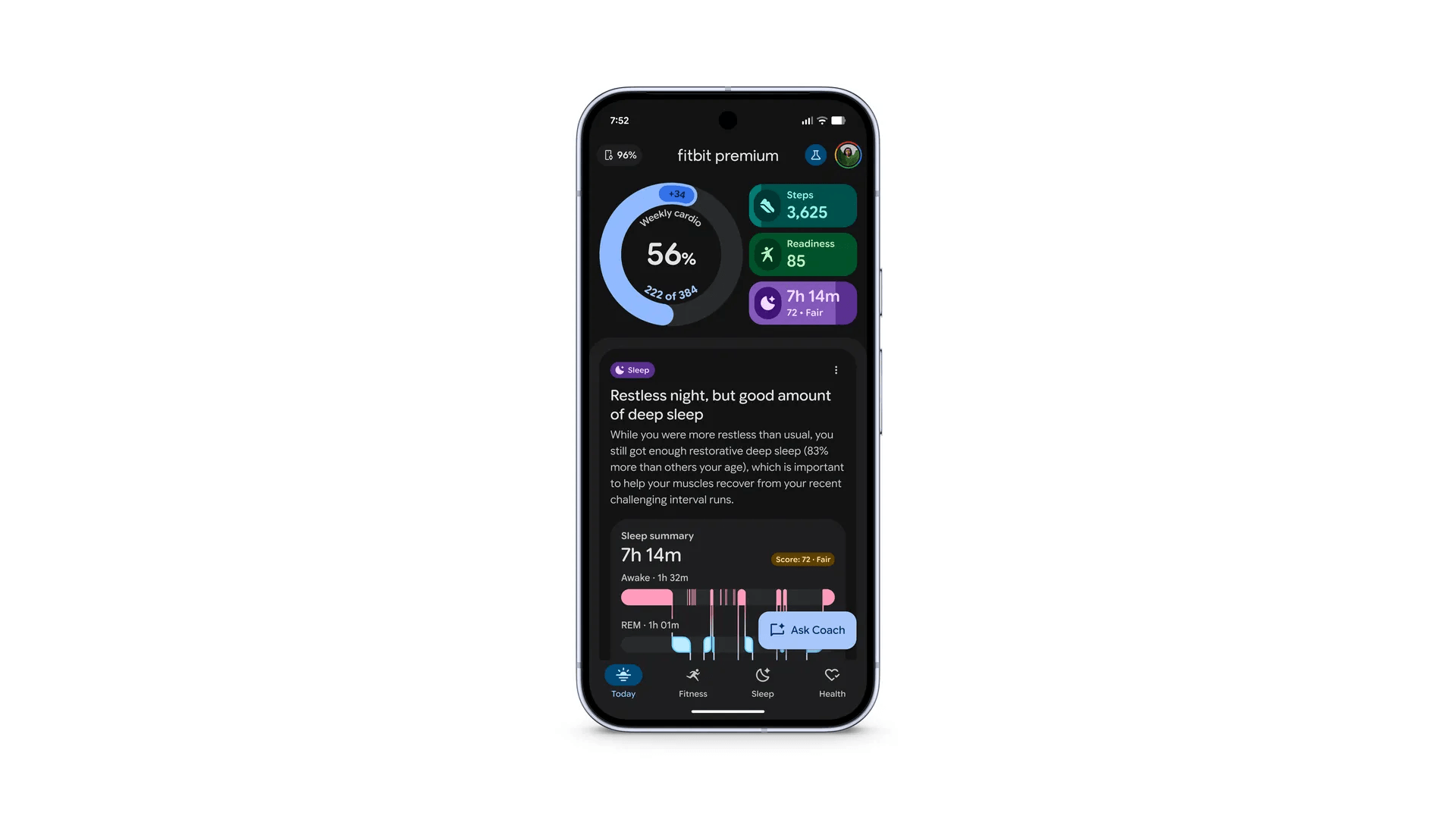With its new AI health coach, Google leverages its platform advantage

Google is adding a new AI-powered coach to Fitbit, built on its Gemini model. The feature is designed to act as a personal fitness, sleep, and wellness advisor and will launch in October as a preview for Fitbit Premium users in the US.
At its "Made by Google 2025" event, Google introduced the new AI health coach for Fitbit. The coach uses Gemini, Google’s in-house AI model, to combine the roles of fitness trainer, sleep coach, and health advisor. The feature will roll out in October as a preview for adult Fitbit Premium subscribers in the US and will be part of a redesigned Fitbit app, compatible with the latest Fitbit and Pixel devices.
The core of the AI coach is its ability to create dynamic plans for both workouts and recovery. After discussing your goals and available equipment, the coach generates a personalized training plan that adapts in real time. If your "Readiness Score" drops after a rough night’s sleep, the coach might suggest tweaking your weekly routine. Sleep coaching works similarly, using new algorithms to spot patterns and even help with jet lag. The coach can also generate a custom sleep schedule that adjusts based on your daily activity.
A comprehensive health advisor with Q&A
Beyond fitness and sleep, the coach is designed to give a holistic view of your well-being. It pulls in real-time metrics from Fitbit and Pixel Watch devices, and, thanks to Health Connect and HealthKit, can incorporate data from third-party devices like smart scales or glucose monitors. The built-in Q&A feature can answer questions like "What are the best exercises for weight loss?" with personalized, science-backed responses, and can proactively notify you about health trends.
This new feature will be integrated into a completely redesigned Fitbit app. Google says the app is built around coaching and AI, with updates based on user feedback. Improvements include more intuitive data visualizations, easier navigation, better syncing, and a new dark mode.
Google leverages its platform advantage
Since the release of GPT-3.5, large language models have become much better at answering health questions. In 2023, ChatGPT outperformed doctors in both quality and empathy when responding to patient questions online. Newer reasoning models like OpenAI’s o1 and o3 have even outperformed doctors or diagnostic teams in specific scenarios. OpenAI now markets GPT-5 as its best model for health questions, and Sam Altman has said that "health" is one of ChatGPT’s top use cases, signaling real demand in this area.
Here’s where Google’s Fitbit coach has an edge over “model-only” approaches like GPT-5: It combines Gemini’s AI with wearable data from Fitbit and Pixel Watch, and can pull in additional signals from Health Connect and HealthKit, including data from scales or glucose monitors. At the same time, the risk of AI hallucinations is especially sensitive in health contexts. Google makes clear that the preview is not a medical device, and recommends users consult with a healthcare professional for medical advice.
AI News Without the Hype – Curated by Humans
As a THE DECODER subscriber, you get ad-free reading, our weekly AI newsletter, the exclusive "AI Radar" Frontier Report 6× per year, access to comments, and our complete archive.
Subscribe nowAI news without the hype
Curated by humans.
- Over 20 percent launch discount.
- Read without distractions – no Google ads.
- Access to comments and community discussions.
- Weekly AI newsletter.
- 6 times a year: “AI Radar” – deep dives on key AI topics.
- Up to 25 % off on KI Pro online events.
- Access to our full ten-year archive.
- Get the latest AI news from The Decoder.